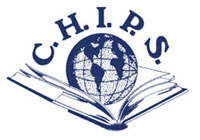Agricultural Science and Technology Engineering Industry Environmental and General Science and Technology Foodservice, Hospitality and Bakery Industry Industrial Chemistry and Technology Medicine Exipure Review Back Pain Breakthrough Review Nagano Tonic Review The Smoothie Diet Review Old School New Body Reviews Review on Unlock Your Hip Flexors Puravive Review Liv Pure Review His Secret Obsession Review Brad Browning's Mend The Marriage System

C.H.I.P.S. 10777 Mazoch Road Weimar, Texas 78962 Phone (979) 263-5683 Fax (979) 263-5685
Email to: C.H.I.P.S. Order Department
online or by fax - mail - or phone
C.H.I.P.S. is a service-oriented company and we welcome your questions and feedback
|

























